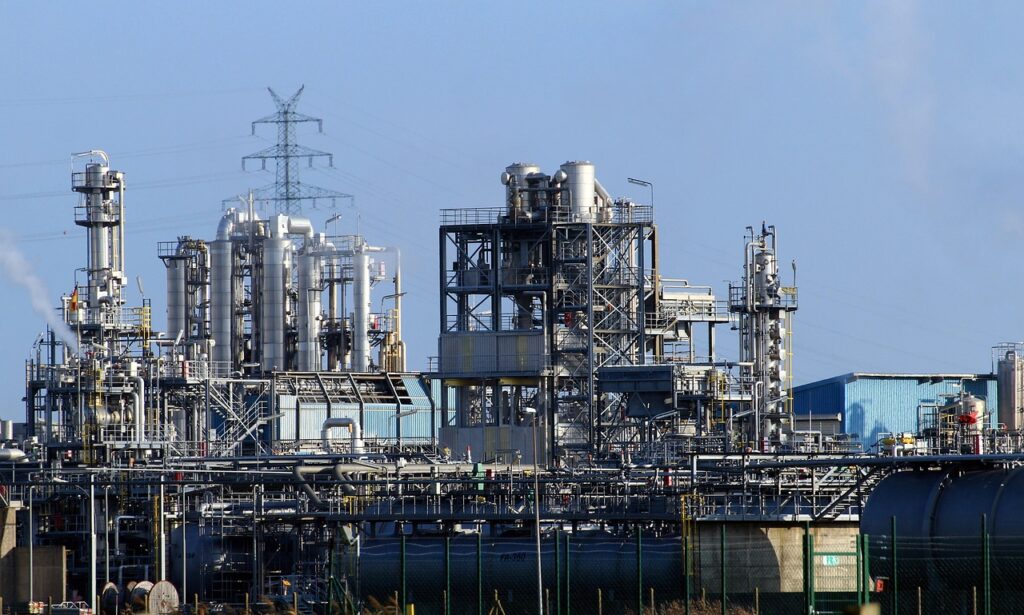Introduction:
The petrochemical industry heavily relies on the vast oil and gas reserves in the Middle East, which are well-known for fueling the region’s economy. While this industry provides many job opportunities, it is also dangerous, and the risk of injury is always present. Injured workers are, unfortunately, a common occurrence in the Middle East’s refineries and petrochemical plants. Many workers have been subjected to hazardous working conditions and are often unprotected from potential harm. This blog will explore the challenges injured plant and refinery workers face in the Middle East, the legal framework to protect them, and the steps taken to improve worker safety. Worker Safety in Middle East’s Petrochemical Industry

Challenges Faced by Injured Plant and Refinery Workers in the Middle East: Worker Safety in Middle East’s Petrochemical Industry
Various factors, such as fires, explosions, toxic gas leaks, and machinery malfunctions, can cause injuries in the petrochemical industry. These hazards pose a significant threat to workers’ safety, and injuries sustained on the job can range from minor to life-threatening. Injured workers may face challenges in obtaining appropriate medical care, lost wages, and even termination of employment.
One of the primary challenges injured workers face in the Middle East is the lack of adequate medical care. Many workers in this region come from low-income backgrounds and may not have health insurance, making it difficult to access proper medical treatment. Additionally, some employers may not have adequate medical facilities on-site or be unwilling to pay for medical care.
Another challenge injured workers face is the legal framework to protect them. In many Middle Eastern countries, labor laws are not adequately enforced, and workers may not be aware of their rights. Some employers may exploit this lack of knowledge and deny workers their rightful compensation.
Finally, injured workers may face job loss or discrimination. Some employers may terminate employment or demote workers injured on the job, making it difficult for them to support themselves and their families. This can be particularly devastating in countries with weak or non-existent social safety nets.
Legal Framework for Protecting Injured Workers: Worker Safety in Middle East’s Petrochemical Industry
In the Middle East, the legal framework for protecting injured workers varies from country to country. Some countries have robust labor laws that provide significant worker protections, while others have weaker or non-existent laws. Regardless of the specific legal framework, employers have a legal obligation to provide a safe working environment for their employees.
In Saudi Arabia, for example, the Labor Law sets out specific occupational safety and health regulations. These regulations require employers to provide adequate safety equipment and training, establish safety committees, and maintain records of workplace accidents. The law also requires employers to provide medical care to injured workers and pay them compensation if they cannot work due to their injuries.
Similarly, in the United Arab Emirates (UAE), the Federal Law on Labor provides significant protections for workers. The law requires employers to provide safe working conditions, establish safety committees, and maintain records of workplace accidents. Injured workers are entitled to medical care, compensation for lost wages, and disability benefits.
Other countries in the Middle East, such as Iran and Iraq, also have labor laws that protect workers. However, the enforcement of these laws may be weaker in practice, and workers may not be aware of their rights.
Improving worker safety in the petrochemical industry is essential to reduce the risk of injury and promote the well-being of workers. Here are some of the steps that can be taken to improve worker safety:
Conduct Hazard Assessments:
Employers should conduct regular hazard assessments to identify potential risks in the workplace. These assessments should be used to develop appropriate safety protocols and procedures to reduce the risk of injury.
Provide Safety Training:
Employers should provide comprehensive safety training to all employees, including new hires and temporary workers. This training should cover hazard recognition, personal protective equipment, emergency response, and safe work practices.
Promote a Safety Culture:
Employers should promote a culture of safety in the workplace. This can be achieved through regular safety meetings, employee engagement, and the developing of a safety committee. Workers should be encouraged to report hazards and near-misses, and management should take appropriate action to address any issues.
Provide Personal Protective Equipment (PPE):
Employers should provide appropriate PPE to all workers based on the hazards present in the workplace. This may include hard hats, safety glasses, gloves, respirators, and protective clothing.
Ensure Proper Maintenance: Employers should ensure that all machinery and equipment are regularly maintained and inspected. Any defects or malfunctions should be addressed immediately to reduce the risk of injury.
Provide Medical Care:
Employers should have a plan to provide prompt medical care to injured workers. This may include having medical personnel on-site or having arrangements in place with local medical facilities.
Implement Emergency Response Plans:
Employers should have emergency response plans to address potential disasters such as fires, explosions, and toxic gas releases. These plans should be regularly reviewed and updated to ensure they are effective.
Engage in Continuous Improvement:
Employers should continually monitor and evaluate their safety programs to identify areas for improvement. This may include conducting safety audits, soliciting worker feedback, and reviewing incident reports. Worker Safety in Middle East’s Petrochemical Industry
In conclusion, improving worker safety in the petrochemical industry is a critical priority for employers and governments in the Middle East. By taking a comprehensive approach to security that includes hazard assessments, safety training, a safety culture, PPE, proper maintenance, medical care, emergency response plans, and continuous improvement, we can reduce the risk of injury and promote the well-being of workers.
Fighting for Your Recovery in Houston, TX
The personal injury attorneys at Houston Injury Lawyers, PLLC, have years of experience helping our clients in Houston to secure fair compensation for their losses from all types of injury claims. We know how uncertain and stressed you and your family must feel after an industrial accident has affected your lives, and we will work tirelessly to ensure you and your loved ones secure the compensation you need to recover as fully as possible.
Houston Injury Lawyers, PLLC

We take the time necessary to get to know every client to understand how their experiences have impacted their lives fully, and we want to put this experience to work in your case. If you are ready to discuss your options for legal recourse with a compassionate and responsive Houston plant and refinery accident attorney, contact us today to schedule a free case evaluation with our team, and we will let you know how we can help with your recovery.

